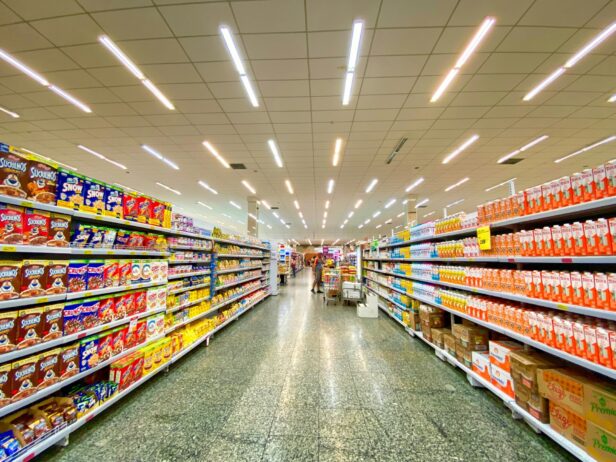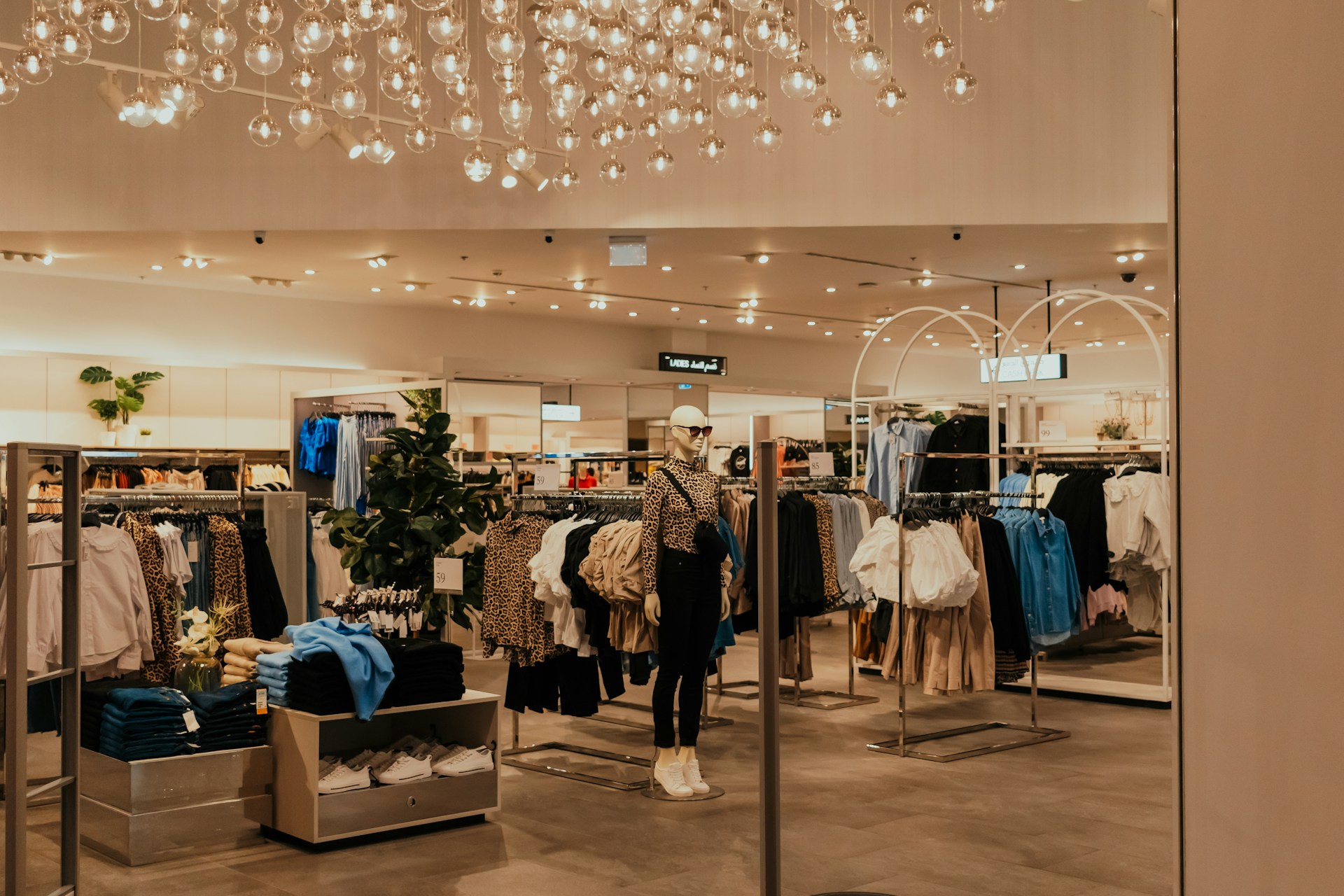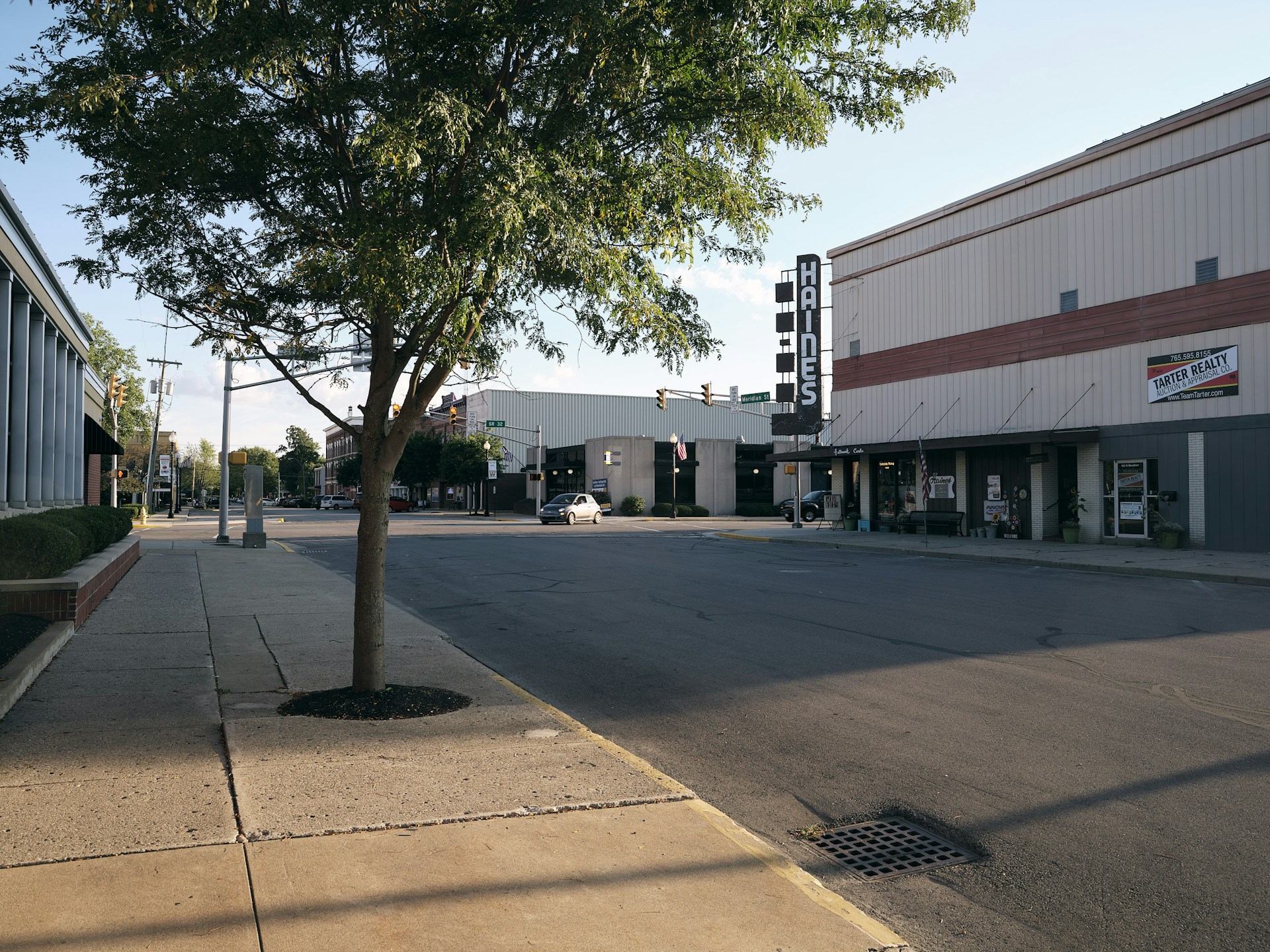The retail construction landscape directly influences a store’s ability to attract customers and drive sales. When executed poorly, build-out work can create barriers to foot traffic and negatively impact revenue from day one.
A retail store build out Dallas project transforms raw commercial space into a functional, customer-ready environment. We coordinate every element from initial demolition through final inspections, ensuring the completed space supports both operational efficiency and customer experience across Dallas’s diverse retail market.
Which Project Types Fit Your Dallas Retail Build-Out Goals?
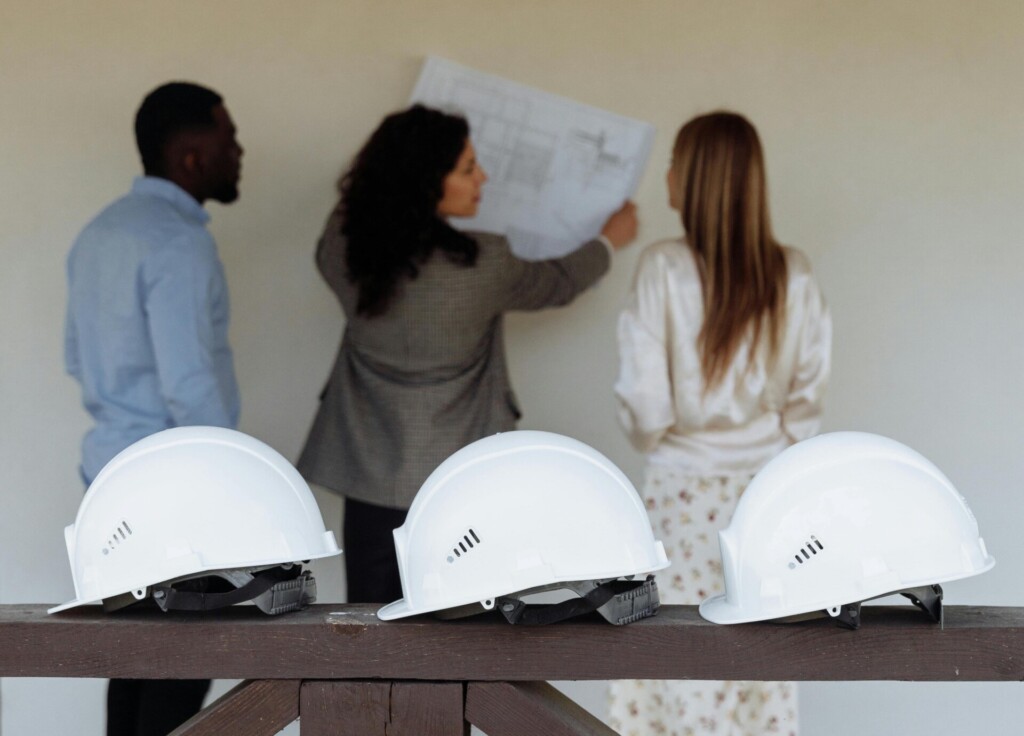
Different retail build-out approaches serve specific business needs and budget requirements. We work with developers and property owners to match the right construction method to their timeline and investment goals.
Complete Buildouts
Buildouts involve demolishing existing interior structures and reconstructing the space to fit new tenant specifications. This approach works best for properties with outdated layouts or when retailers need specific spatial configurations that existing structures cannot accommodate. We coordinate selective demolition, utility rerouting, and new construction within occupied buildings.
The buildout process requires careful planning to protect adjacent tenant spaces during demolition phases. Our teams use dust containment systems and schedule heavy work during off-peak hours to minimize disruption to neighboring businesses.
Storefront Remodeling
Storefront remodeling focuses on updating the exterior facade and entrance areas to attract more foot traffic and improve curb appeal. This type of project typically involves new signage, updated glazing systems, and refreshed exterior finishes. The work directly impacts visibility from parking areas and pedestrian walkways.
We coordinate storefront work around business operating hours, often completing installations during evening or weekend periods. Material selections emphasize durability against Texas weather conditions while meeting local zoning and signage requirements.
Interior Renovations and Retail Fit-Out
Interior renovations upgrade finishes, lighting systems, and spatial layouts to improve function and visual appeal. These projects focus on enhancing the customer experience through better circulation patterns and updated materials. We handle flooring replacements, ceiling improvements, and fixture installations while maintaining business operations.
Retail fit-out work adapts spaces to specific merchandise requirements and brand standards. This includes custom millwork, specialized lighting for product displays, and electrical infrastructure for modern retail technology systems.
Rebranding Projects
Rebranding construction refreshes the look and materials to match updated brand standards with less scope than complete remodels. These projects typically focus on paint, signage, fixture updates, and accent features that reinforce the new brand identity. The work can often be completed in phases to minimize business interruption.
We coordinate rebranding timelines with marketing launches and seasonal business cycles. Material selections balance brand requirements with practical maintenance considerations for high-traffic retail environments.
Sustainability and Energy Efficiency Projects
Sustainability projects help retail spaces improve energy efficiency and reduce operational costs. We install LED lighting systems, upgrade HVAC equipment, and implement smart building controls that optimize energy usage. These improvements often qualify for utility rebates and tax incentives.
Energy efficiency upgrades typically include window replacements, insulation improvements, and high-performance building envelope systems. The construction process focuses on maintaining comfortable conditions for customers while implementing new systems.
Turnkey Solutions
Turnkey solutions deliver complete build or remodel projects ready for immediate use or sale. We manage all aspects from design development through final inspections and certificate of occupancy. This approach works well for developers who need predictable timelines and single-point responsibility.
Our turnkey process includes tenant coordination meetings, permit acquisition, and final cleanup services. We deliver spaces with all fixtures installed, utilities connected, and compliance documentation complete.
Tenant Finish-Out
Tenant finish-out adapts commercial shell spaces or existing buildings to retailer specifications. This work transforms raw commercial space into functional retail environments with proper lighting, flooring, and mechanical systems. We coordinate utility connections and ensure compliance with accessibility requirements.
Shell space conversions require careful evaluation of existing infrastructure capacity and structural modifications needed for retail use. The process includes installing partition walls, electrical distribution, and specialized systems for specific retail categories.
How Should You Plan Scope, Drawings, And Budget For A Dallas Build-Out?
Effective preconstruction planning forms the foundation of every successful Dallas retail build-out. We start each project with comprehensive site drawings that capture existing conditions, structural elements, and infrastructure capabilities. These detailed assessments reveal potential challenges before demolition begins, allowing us to address issues proactively rather than reactively during construction.
Floor plans serve as the blueprint for transforming space into functional retail environments. We create scaled drawings that show room layouts, traffic flow patterns, and equipment placement. Each plan includes dimensions, ceiling heights, and utility locations to ensure accurate material calculations and permit submissions.
Establishing Clear Project Scope
Defining project scope early prevents costly changes during construction. We work with property owners to establish exactly what work needs completion, from structural modifications to finish installations. This includes identifying which walls require removal, what electrical upgrades are necessary, and which finishes align with the retailer’s brand standards.
Architectural design coordination ensures all team members understand the project vision. We collaborate with architects, engineers, and specialty consultants to create cohesive plans that meet both aesthetic goals and functional requirements. Clear documentation eliminates confusion and keeps all trades working toward the same objectives.
Accurate Cost Estimates Through Value Engineering
Cost estimates require detailed analysis of materials, labor, and project complexity. We break down every component from sitework to final finishes, using current Dallas market pricing for accurate projections. Our estimates include permits, inspections, and contingencies for unforeseen conditions that commonly arise in retail spaces.
Value engineering helps balance budget constraints with design goals. We evaluate alternative materials and construction methods that maintain quality while controlling costs. This process might involve selecting different flooring options or adjusting lighting layouts to achieve the desired aesthetic within budget parameters. Data-driven cost estimation uses real project information rather than generic estimates, providing more reliable budget forecasting for Dallas retail construction.
Transparent estimating practices build trust with property owners and retailers. We provide detailed breakdowns showing where every dollar goes, from materials and labor to permits and overhead costs. This transparency allows informed decision-making about scope adjustments or alternative approaches that might better serve project goals.
Stakeholder Coordination And Documentation
Project coordination brings together property owners, tenants, architects, and regulatory agencies from the planning phase. We establish communication protocols that keep everyone informed of progress, changes, and decisions. Regular coordination meetings prevent misunderstandings and ensure all parties remain aligned with project objectives.
Documentation supports both construction execution and regulatory compliance. We maintain detailed records of scope decisions, material selections, and design changes throughout preconstruction planning. This documentation becomes essential during permit reviews and helps prevent disputes about what was originally agreed upon.
Materials selection balances performance, aesthetics, and budget considerations. We evaluate options based on durability, maintenance requirements, and alignment with brand standards. Early material decisions allow accurate pricing and prevent delays waiting for product availability or approval processes during construction phases.
How Are Timelines, Subcontractors, And Risks Managed In Dallas Retail Projects?
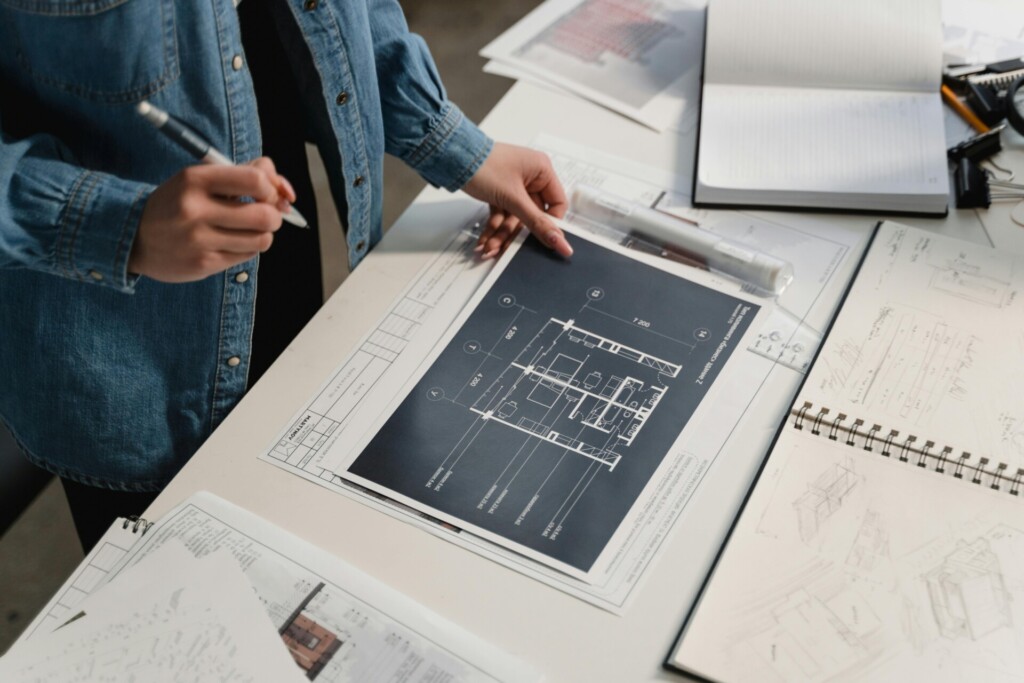
Meeting the advertised opening date for a retail project requires precise schedule management and proactive coordination. We approach each Dallas retail build-out with clear timeline expectations and systematic risk management to prevent delays that could postpone store openings.
Schedule Coordination And Trade Management
Effective subcontractor coordination forms the backbone of successful retail construction. We sequence trades to prevent conflicts and ensure each specialty contractor completes their work within designated time windows. This involves coordinating electrical rough-in before drywall installation and scheduling flooring after paint completion.
Trade scheduling requires ongoing communication with subcontractors about material deliveries and labor availability. We maintain relationships with reliable electrical, plumbing, and HVAC contractors who understand retail project timelines. Regular coordination meetings keep all trades aligned with the master schedule and help identify potential conflicts before they impact the project timeline.
Risk Management And Issue Resolution
Dallas retail projects face common risks that we actively monitor and address. Material shortages can delay critical path activities, so we track long-lead items and maintain backup suppliers when possible. Energy-efficient lighting systems and specialty fixtures often require extended delivery times that we account for in our scheduling.
Code changes and permit revisions represent another risk factor in retail construction. We stay current with Dallas building code updates and maintain relationships with city inspectors to address compliance issues quickly. Labor shifts and crew availability can also impact schedules, particularly during peak construction seasons in the Dallas market.
Field operations require constant monitoring to identify emerging issues. We implement daily progress tracking to catch problems early and adjust schedules as needed. Weather delays, utility connections, and coordination with property management companies can all affect retail project timelines.
Technology Integration For Transparency
Integrated office-field communication tools help our teams make timely decisions without waiting for scheduled meetings. Digital project management platforms allow real-time updates on task completion, material deliveries, and quality checkpoints. This technology streamlines decision-making and keeps projects moving forward.
Daily updates provide property owners and retailers with consistent project visibility. We document progress with photos, completion percentages, and any issues requiring attention. This communication prevents surprises and allows stakeholders to make informed decisions about opening preparations.
Live camera access gives owners remote visibility into construction progress without requiring frequent site visits. These cameras capture key work areas and provide time-lapse documentation of project advancement. Property owners can monitor work quality and progress from their offices, reducing the need for constant site visits while maintaining project oversight.
What Design Directions Are Common In Dallas Retail Build-Outs?
Modern rustic design has gained significant traction in Dallas retail spaces, combining natural warmth with contemporary functionality. Wood ceilings create visual interest while exposed concrete flooring provides durability for high-traffic areas. Green accent walls add color depth and establish a calming backdrop that encourages longer customer visits.
The minimalist approach focuses on clean lines and uncluttered spaces. White-wall layouts with streamlined shelving systems place emphasis squarely on product displays. Central checkout counter placement optimizes customer flow patterns and creates clear sightlines throughout the store.
Material Choices That Support Function
Wood finishes serve dual purposes in retail environments. Ceiling treatments with warm-toned wood add acoustic benefits while creating visual warmth. Oak and walnut selections resist wear while maintaining their appearance under constant commercial lighting.
Exposed concrete flooring handles heavy foot traffic without showing scuff marks or requiring frequent refinishing. The industrial aesthetic appeals to younger demographics while keeping maintenance costs predictable. Polished concrete surfaces reflect light effectively, reducing artificial lighting needs during daylight hours.
Layout Elements For Brand Expression
Feature walls become focal points that communicate brand personality immediately upon entry. Rustic textures work particularly well for food concepts and boutique retailers who want to convey authenticity. These walls accommodate branded signage integration without overwhelming the overall design scheme.
Circulation patterns require careful planning around fixture placement and checkout counter positioning. Wide aisles accommodate wheelchair access while allowing customers to move comfortably with shopping bags. Strategic placement of high-draw items near the checkout counter increases last-minute purchase opportunities.
Color coordination between accent walls, wood finishes, and signage creates cohesive brand experiences. Consistent application of these elements across multiple locations builds brand recognition and customer loyalty. We coordinate these design decisions with mechanical systems placement to maintain clean sightlines while meeting code requirements for emergency egress and accessibility.
Conclusion And Next Steps

A successful retail store build out in Dallas connects the right project category with clear business objectives while maintaining strict control over timeline and budget variables. We approach each project by establishing scope boundaries early, implementing transparent estimating practices, and coordinating subcontractors within tight schedules that respect opening date commitments.
Moving forward, property owners and developers should focus on four critical actions. First, identify the specific build-out category that aligns with your retail concept and investment parameters. Second, request comprehensive architectural plans and detailed cost breakdowns that include value engineering opportunities. Third, synchronize your construction timeline with lease obligations and planned opening dates. Finally, establish systematic construction updates and change order tracking protocols that maintain project accountability throughout the build process.
Ready to discuss your retail construction project in Dallas? Contact EB3 Construction to explore how we can deliver your retail vision.

